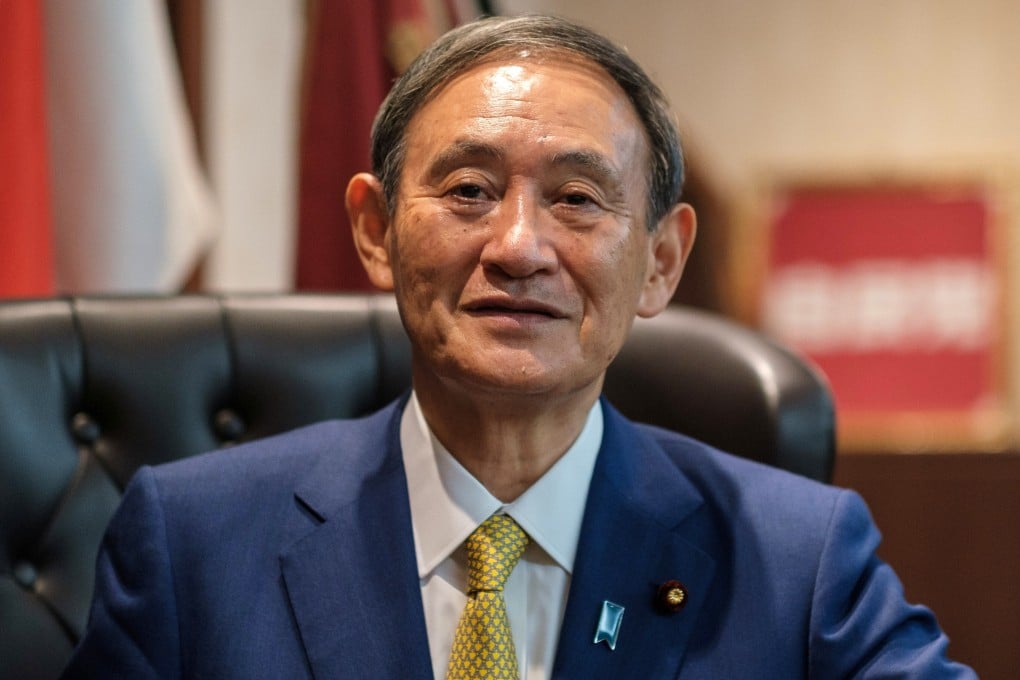Advertisement
Explainer | Yoshihide Suga: who is Japan’s new prime minister?
- Suga, 71, is a farmer’s son who was described as a ‘shadow prime minister’ during his career as Shinzo Abe’s top spokesman
- His notorious work ethic, which sees him living near the office and doing 200 sit-ups a day, is almost matched by his love of pancakes
Reading Time:5 minutes
Why you can trust SCMP

Japan’s new prime minister Yoshihide Suga on September 16 became the country’s first leader in nearly eight years, forming a cabinet of familiar faces to stay the course set by his predecessor Shinzo Abe.
Suga’s government posted the third-highest support levels recorded for a premier entering office, with a support rate of 74 per cent, the Nikkei newspaper said in a survey released on September 18. This was higher than the 62 per cent seen by Abe in 2012.
As Abe’s top spokesman, Suga fronted daily news briefings, one of which led to him being known as “Uncle Reiwa” after he unveiled Emperor Naruhito’s imperial era name. His reputation for being a hard-nosed lieutenant who managed bureaucrats and pushed policies prompted observers to describe him as a “problem-solver”, “seat-warmer” and “shadow prime minister”.
Advertisement
Suga comes to the top job at a time when Japan is grappling with a coronavirus-hit economy, while longer-term challenges include the country’s low birth rate, geopolitical tensions and the US-China rivalry.

02:11
Japan’s new PM Yoshihide Suga inherits economic woes, Tokyo Olympics challenge
Japan’s new PM Yoshihide Suga inherits economic woes, Tokyo Olympics challenge
Who is Suga and how did he rise to the top job?
The son of a strawberry farmer, Suga grew up in rural Akita prefecture in northern Japan and left for Tokyo instead of taking over his family’s farm.
Advertisement
Advertisement
Select Voice
Select Speed
1.00x